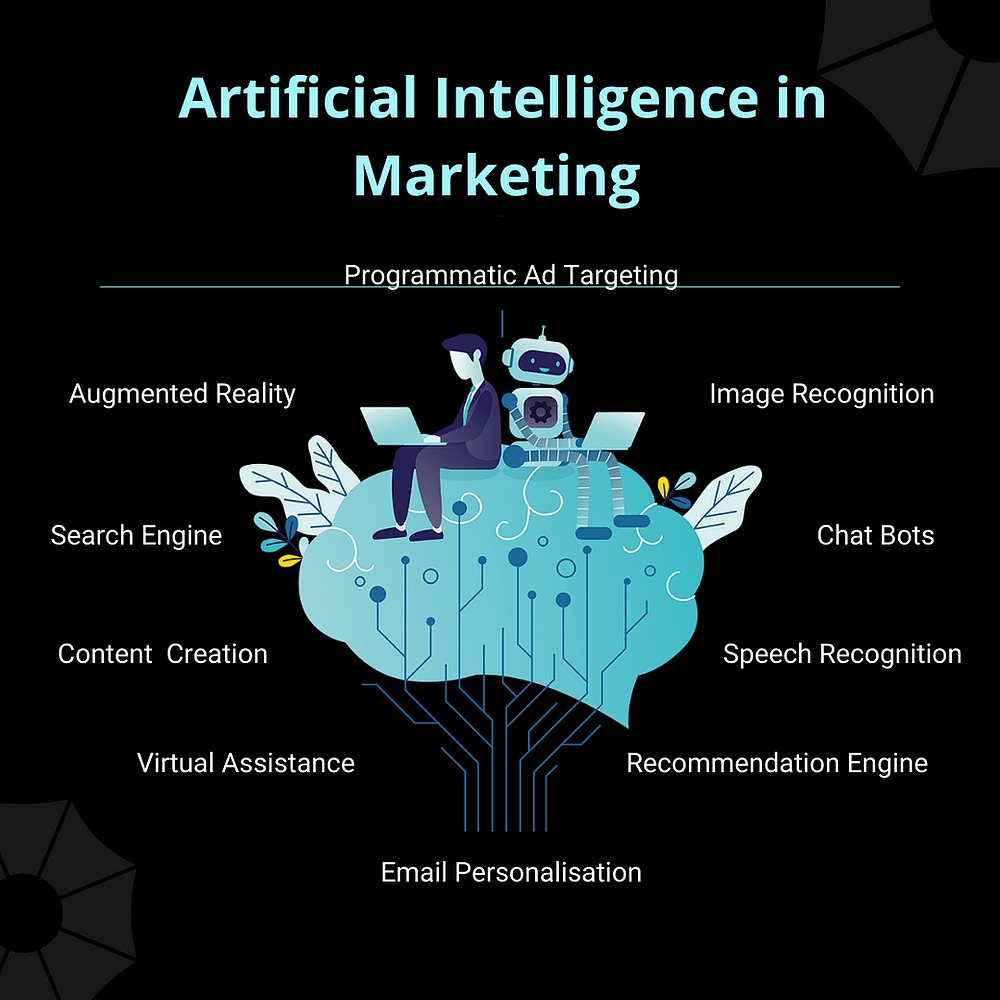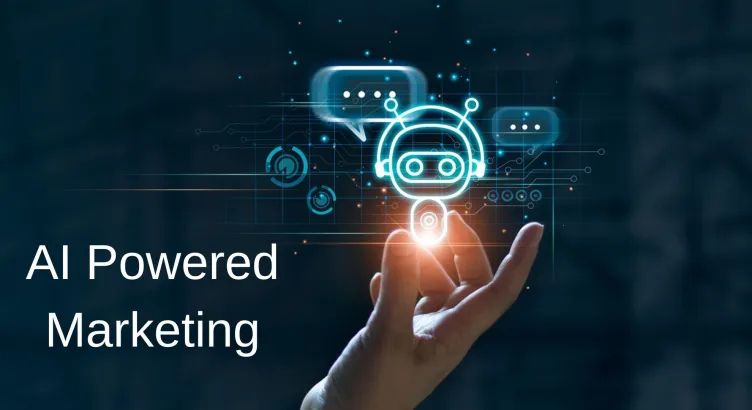Artificial Intelligence (AI) is transforming every industry — and marketing is no exception. What once seemed like futuristic technology is now a powerful part of everyday marketing strategies. If you’re still unsure whether to adopt AI in your marketing plan, it’s time to embrace it or risk falling behind.
In this blog, we’ll explore how AI is reshaping marketing, why businesses need to embrace it, and which tools and strategies you can implement today.
What is AI in Marketing?
AI Artificial Intelligence in marketing refers to the use of machine learning algorithms, data analytics, and automation tools to improve campaign performance, customer experience, and decision-making. It enables marketers to:
- Analyze massive amounts of data
- Personalize content
- Predict customer behavior
- Automate repetitive tasks
- Optimize ad targeting and budget usage
AI isn’t here to replace marketers — it’s here to empower them.

Why Embrace AI in Marketing?
1. Boosts Efficiency
AI can automate tasks like:
- Email segmentation
- Social media posting
- Ad placement
- Reporting
This frees up time for marketers to focus on strategy and creativity.
2. Delivers Personalized Customer Experience
AI can analyze user behavior and deliver hyper-personalized content. For example:
- Product recommendations on eCommerce sites
- Personalized email content
- Dynamic landing pages
This leads to higher engagement and conversions.
3. Improves Ad Targeting
AI can study user patterns and optimize ad campaigns Artificial Intelligence in real time, ensuring:
- Better click-through rates (CTR)
- Lower cost per acquisition (CPA)
- Higher return on ad spend (ROAS)
Tools like Google Ads Smart Bidding or Meta Advantage+ use AI to maximize performance.
4. Predicts Consumer Behavior
AI tools can forecast customer needs and buying trends before they happen. This allows businesses to:
- Launch relevant products
- Create timely campaigns
- Reduce customer churn
Predictive analytics is the secret weapon of modern marketing.
5. Enhances Content Creation
AI tools like ChatGPT, Copy.ai, and Jasper help marketers:
- Generate blog ideas
- Write ad copy
- Create social media posts
While human input is still essential, AI speeds up the content process drastically.
Popular AI Tools for Marketers
| Tool Name | Function |
|---|---|
| ChatGPT | Content writing, email drafts, brainstorming |
| Jasper.ai | AI copywriting for ads and websites |
| Grammarly | AI-powered grammar and style suggestions |
| Canva AI | Design suggestions and text-to-image tools |
| SEMrush AI | SEO and competitor analysis |
| Surfer SEO | AI-driven on-page SEO optimization |
Real-World Example
Netflix uses AI to analyze user behavior and recommend content.
Amazon uses AI to recommend products and optimize pricing.
Spotify uses AI for personalized playlists and email recommendations.
You can use the same principles in your business — no matter how small — through affordable AI tools.
Challenges to Watch
While AI in marketing is powerful, it’s not perfect. Be cautious about:
- Over-automation (don’t lose your brand voice)
- Data privacy concerns (comply with GDPR & local laws)
- Content accuracy (AI can make factual errors)
Use AI as a support, not a full replacement for human strategy.
How to Get Started with AI Artificial Intelligence in Marketing
- Start small: Automate emails or use AI for headlines.
- Choose 1–2 tools: Don’t overwhelm your workflow.
- Monitor results: Use analytics to measure effectiveness.
- Keep learning: AI is evolving — so should your strategy.

What is AI Ad Targeting?
AI ad targeting is the process of using machine learning algorithms, big data, and predictive analytics to analyze consumer behavior and deliver personalized advertisements. Instead of relying on traditional demographic data alone, AI dives deeper—looking at online activity, purchase patterns, browsing history, and even sentiment to refine targeting strategies.
How AI Improves Ad Targeting
1. Hyper-Personalization
AI analyzes user data in real-time to understand individual preferences. This enables brands to deliver highly personalized ads that resonate with each user. Whether it’s recommending products based on past purchases or tailoring messages to match browsing habits, personalization boosts engagement and conversion rates.
2. Real-Time Optimization
AI doesn’t just set a campaign and leave it. It constantly monitors performance and adjusts targeting strategies dynamically. This real-time optimization helps reduce ad spend waste and ensures ads are shown to the most receptive audiences.
3. Audience Segmentation
AI can create micro-segments of your audience by analyzing vast sets of behavioral data. This level of segmentation allows marketers to craft specific messaging for niche groups, increasing ad relevance and effectiveness.
4. Predictive Analytics
With AI, businesses can predict future buying behaviors based on historical data. This allows marketers to proactively target customers who are most likely to convert, reducing acquisition costs and boosting ROI.
5. Improved Customer Insights
AI tools gather and process data from various sources such as CRM systems, social media, email campaigns, and websites. The insights generated help advertisers understand their customers better and tailor their targeting accordingly.
AI in Action: Real-World Use Cases
- Facebook & Instagram Ads: Meta uses AI to automatically place ads where they perform best, based on users’ behavior and engagement patterns.
- Google Ads: Google’s Smart Bidding uses AI to optimize bids in real-time for each auction, helping advertisers achieve better results for their goals.
- Amazon Advertising: Amazon’s recommendation engine, powered by AI, is a prime example of ad targeting that influences purchasing decisions.
Benefits of AI-Powered Ad Targeting
- Higher Ad Relevance
- Reduced Wasted Ad Spend
- Enhanced Campaign Performance
- Smarter Decision Making
- Increased ROI and Customer Engagement
The Future of AI in Ad Targeting
As AI continues to evolve, expect even more sophisticated ad targeting features, including voice search optimization, deeper emotional analysis through AI-powered sentiment detection, and fully automated campaign management. Businesses that embrace AI-driven advertising today will have a significant competitive advantage tomorrow.
Final Thoughts
AI in marketing is no longer optional — it’s a necessity. From automation to personalization, businesses that embrace AI will gain a massive competitive edge.
Start today, even with small changes, and watch your marketing transform into a data-driven, customer-focused powerhouse.